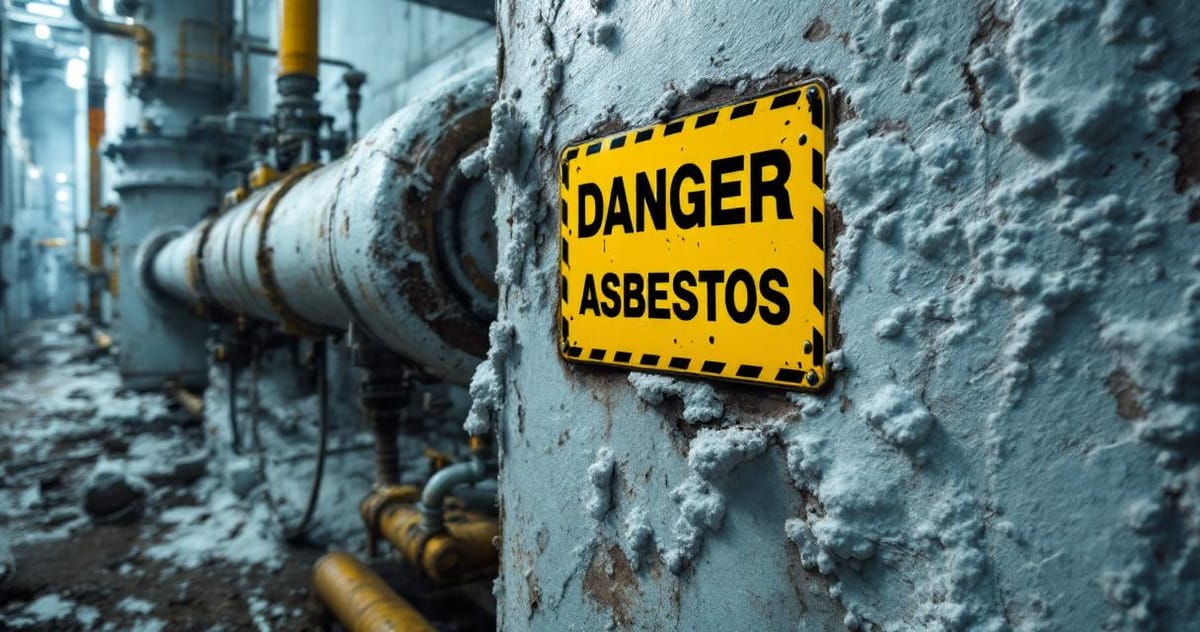Trump's EPA Reopens Door to Cancer-Causing Asbestos: What This Means for Public Health
The Environmental Protection Agency under the Trump administration is reconsidering regulations that ban certain uses of asbestos, a known carcinogen responsible for thousands of deaths annually in the United States. This potential policy reversal has sparked alarm among public health advocates, environmental groups, and medical professionals who warn that any relaxation of asbestos restrictions could lead to increased exposure and preventable deaths.
The Deadly Legacy of Asbestos
Asbestos, once hailed as a "miracle mineral" for its fire-resistant properties, has a dark history in American industry. The naturally occurring fibrous minerals were widely used in construction materials, insulation, and automotive parts throughout the 20th century. However, decades of scientific research have definitively linked asbestos exposure to several fatal diseases, including:
- Mesothelioma: A rare, aggressive cancer that affects the lining of the lungs, chest cavity, or abdomen
- Lung cancer: Particularly prevalent among workers with prolonged asbestos exposure
- Asbestosis: A chronic lung disease causing progressive scarring of lung tissue
According to the Environmental Working Group, asbestos-related diseases kill between 12,000 and 15,000 Americans annually. The World Health Organization estimates that 125 million people worldwide face occupational asbestos exposure, with approximately 107,000 dying each year from related diseases.
Current Regulations Under Review
The EPA's reconsideration focuses on the Significant New Use Rule (SNUR) for asbestos, which requires companies to seek EPA approval before manufacturing, importing, or processing asbestos for certain uses. While asbestos isn't completely banned in the United States—unlike in over 60 other countries—strict regulations have dramatically reduced its use since the 1970s.
The agency's move to potentially ease restrictions comes despite overwhelming scientific consensus about asbestos dangers. The EPA has indicated it may allow new uses of asbestos in manufacturing and construction, pending a review process that critics argue prioritizes industry interests over public safety.
Industry Influence and Economic Arguments
Proponents of relaxing asbestos regulations argue that modern handling techniques and safety equipment can minimize exposure risks. The chlor-alkali industry, which uses asbestos diaphragms in producing chlorine and caustic soda, has lobbied for continued access to asbestos imports, primarily from Russia and Brazil.
However, public health experts counter that no level of asbestos exposure is safe. Dr. Richard Lemen, former Assistant Surgeon General, states: "The science is clear—asbestos kills, and any exposure increases cancer risk. There's no economic argument that justifies endangering lives."
International Perspective and Public Health Concerns
The United States remains one of the few developed nations without a comprehensive asbestos ban. Countries including the United Kingdom, Australia, Japan, and all European Union member states have implemented complete prohibitions. Canada, once the world's largest asbestos exporter, banned the substance in 2018.
Environmental and health organizations worry that loosening regulations could:
- Increase occupational exposure for construction workers, mechanics, and factory employees
- Lead to asbestos-containing products entering homes and schools
- Undermine decades of public health progress
- Create long-term healthcare costs far exceeding any short-term economic benefits
What This Means for Americans
The EPA's reconsideration process includes a public comment period, allowing citizens to voice concerns. Health advocates encourage Americans to:
- Submit comments to the EPA opposing any relaxation of asbestos regulations
- Contact congressional representatives about maintaining strong asbestos protections
- Stay informed about asbestos-containing products and exposure risks
- Support organizations working to ban asbestos completely
Looking Forward
As the EPA moves forward with its review, the stakes couldn't be higher. With thousands of lives lost annually to asbestos-related diseases and a latency period of 20-50 years between exposure and illness onset, decisions made today will impact public health for generations.
The scientific evidence against asbestos use is unequivocal, and the human cost is measurable in lives lost and families devastated. As one mesothelioma survivor testified before Congress: "No job, no product, no profit is worth a human life." The question remains whether policymakers will heed these warnings or potentially reverse decades of life-saving regulations.
